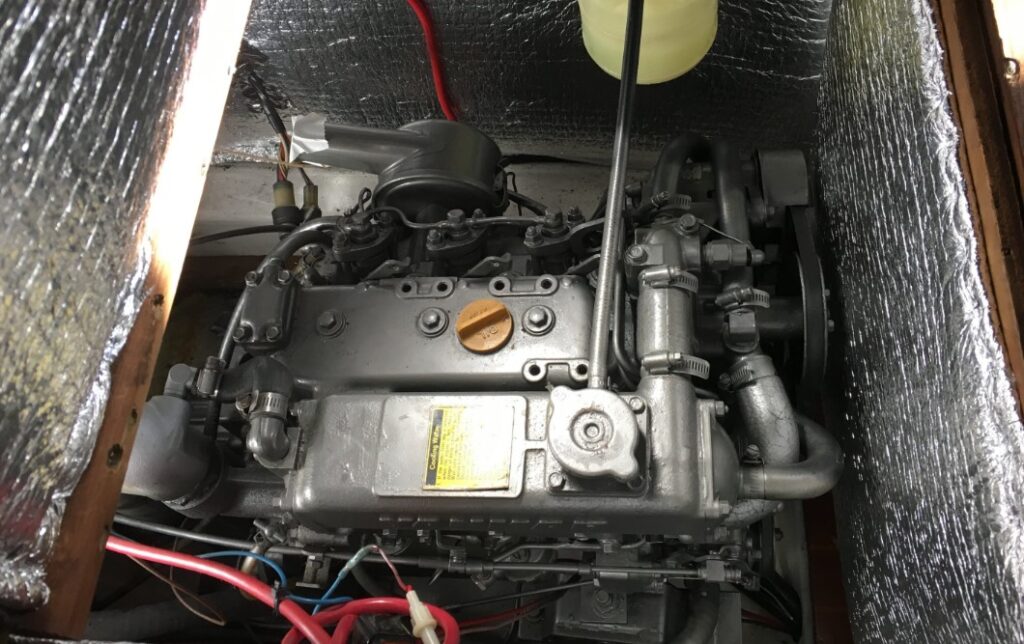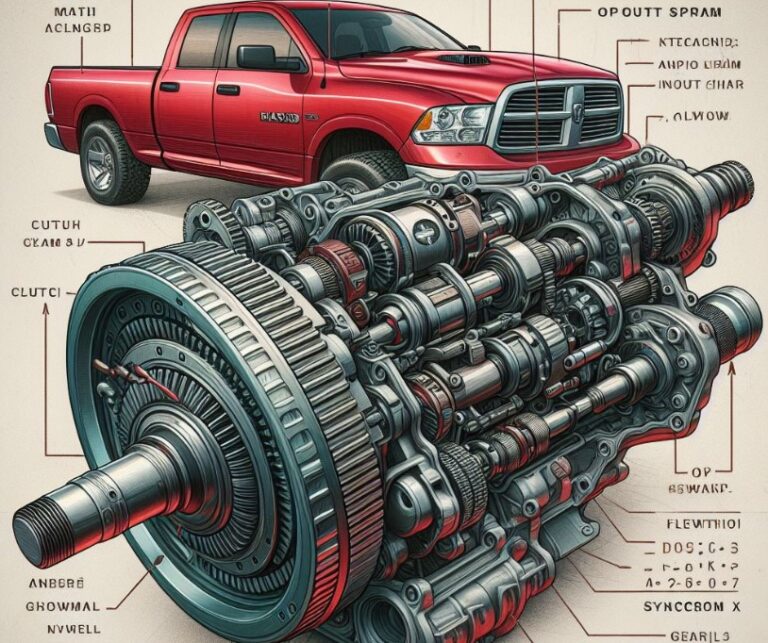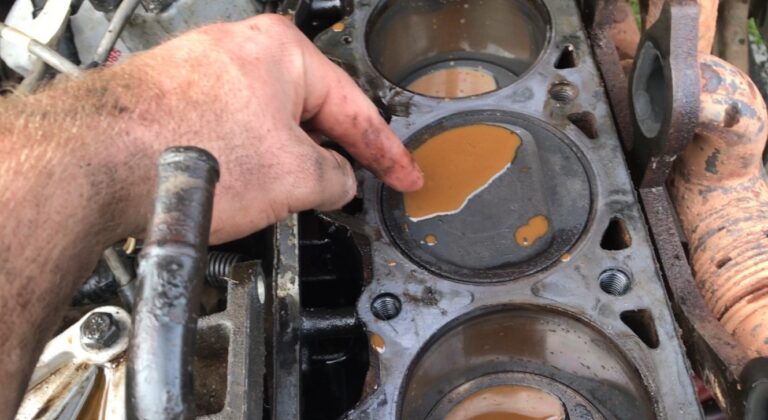Are Yanmar Engines Good? Quick Answer
This article will explain Are Yanmar Engines Good? Yanmar engines have a reputation for being a top choice among marine professionals and enthusiasts alike. Their engines are known for their durability, fuel efficiency, and reliability, making them a preferred option for many.
Key Takeaways
- Yanmar engines are celebrated for their longevity and reliability.
- They are designed specifically for marine applications, ensuring optimal performance.
- Regular maintenance and proper use can extend the life of Yanmar engines significantly.
Are Yanmar Engines Good?
Yes, Yanmar engines are widely regarded as good due to their reliability, durability, and efficiency. They are well-respected in the industry for their innovative designs and are used across various applications, including marine, agriculture, and construction. Yanmar’s commitment to quality and customer satisfaction further reinforces its reputation for producing good engines.

The Durability of Yanmar Engines
Yanmar’s History of Reliability: As pioneers in the industry, Yanmar has established a legacy of engineering excellence. Their marine engines are not only built to last but are also designed with the latest technology to ensure they meet the highest standards of performance.
Engineered for the Marine Environment
Purpose-Built Marine Engineering: Yanmar’s engines are specifically engineered for marine use, which means their components and configurations are optimized for performance in the demanding marine environment. This specialized design contributes to the engines’ exceptional reliability and longevity.
The Efficiency of Yanmar Engines
Fuel Savings and Performance: Yanmar engines stand out for their fuel efficiency. For instance, Captain David Hudson of Finest Kind Sportfishing was able to offset the cost of his Yanmar engines with the fuel savings they provided within just two years, showcasing the engines’ cost-effectiveness and performance.

Yanmar’s Global Support Network
Unmatched Parts Availability and Dealer Support: The global YANMAR network ensures that parts are readily available and that support is never far away. This extensive network is a testament to Yanmar’s commitment to its customers and their engines’ reliability.
The Evolution of Yanmar Engines
Innovation and Advancement: Yanmar continues to innovate, with the 6LY-CR engine representing the latest in their line of advanced marine diesel engines. These engines offer the benefits of electronic common rail fuel-injection technology, further enhancing efficiency and performance.
Customer Testimonials and Industry Recognition
Real-World Endorsements: Customers and industry experts alike praise Yanmar engines for their reliability and longevity. Stories of engines ‘still going’ after extensive use are a common testament to the quality that Yanmar delivers.
The Technological Edge of Yanmar Engines
Yanmar’s engines are not just engines; they are marvels of modern marine technology. The company’s dedication to innovation is evident in its integration of advanced features like common rail fuel injection systems.

These systems are meticulously designed to optimize fuel delivery, enhancing combustion efficiency, reducing emissions, and providing smoother operation. The result is a range of engines that operate at peak performance while minimizing their environmental impact.
Moreover, Yanmar’s technological advancements extend to their control systems. The precision in electronic engine controls allows for fine-tuning of performance, ensuring that each Yanmar engine operates within the optimal range for power and fuel economy.
This level of control is crucial, particularly in commercial marine operations where efficiency and reliability are paramount.
Yanmar’s Commitment to Sustainability
In the realm of marine engines, sustainability is key, and Yanmar’s engines are at the forefront of eco-friendly design. The company’s approach to sustainability is holistic, focusing on reducing the carbon footprint of its products without compromising on power or performance.
Yanmar engines are designed to meet stringent international emission standards, which speaks volumes about their commitment to the environment.
Yanmar’s newer engine models are a testament to their eco-conscious approach. They are engineered to produce fewer emissions and be compatible with various biofuels.
This adaptability not only prepares Yanmar for a future of diverse fuel sources but also provides users with more options to reduce their ecological impact while enjoying the benefits of a high-performance engine.
Customer-Centric Approach and After-Sales Service
Yanmar’s relationship with its customers goes beyond the sale of an engine. The company prides itself on a customer-centric approach, offering comprehensive after-sales service that ensures each customer gets the most out of their investment.
This includes regular maintenance checks, easy access to genuine spare parts, and expert advice on engine care.

The after-sales service provided by Yanmar is backed by a network of skilled technicians and service centers. This ensures that, no matter where a Yanmar engine is in operation, the support needed to maintain it is readily available.
This level of service is crucial for maintaining the long-term performance and reliability that Yanmar engines are known for.
Continuous Improvement and Research
Yanmar’s pursuit of excellence is relentless. The company invests heavily in research and development, constantly seeking ways to improve its engines.
This drive for continuous improvement means that Yanmar engines are always at the cutting edge, benefiting from the latest technological advancements and engineering insights.
The research conducted by Yanmar isn’t just about improving engine performance; it’s also about enhancing user experience.
From reducing engine noise to improving vibration damping, Yanmar works to ensure that their engines provide not only the power needed but also the comfort that operators appreciate during long hours at sea.
Yanmar’s Global Presence and Cultural Adaptability
Yanmar’s global presence is a reflection of its adaptability to various markets and cultures. Understanding that each region has its unique demands, Yanmar ensures that its engines are versatile enough to meet diverse operational needs.
This global perspective is crucial for a company that serves an international clientele, and Yanmar excels in this regard.

The adaptability of Yanmar engines is also seen in their range of applications. From small fishing boats to large commercial vessels, Yanmar engines are trusted to deliver.
This versatility is a key factor in Yanmar’s success and is a direct result of their willingness to listen to and learn from their customers worldwide.
Who Makes Yanmar Engines?
Yanmar engines are manufactured by Yanmar Co., Ltd., a Japanese company with a history stretching back to 1912. The company has built a reputation for crafting durable and reliable engines, with a focus on diesel engine technology.

Yanmar’s expertise spans various sectors, including marine, agriculture, construction, and energy systems. Their engines are known for their robust performance and are a product of Yanmar’s commitment to innovation, sustainability, and customer satisfaction.
The company’s global footprint and its dedication to technological advancement have made Yanmar a household name in the engine manufacturing industry.
How Long Should A Yanmar Engine Last?
The lifespan of a Yanmar engine can vary depending on several factors, including the model, application, and maintenance. However, Yanmar engines are renowned for their longevity and durability.

With proper maintenance, many Yanmar engines can last well over 5,000 operational hours. Some commercial models are even known to exceed 10,000 hours with rigorous maintenance schedules.
Owners must follow the recommended service intervals and use genuine parts to ensure their Yanmar engine reaches its full lifespan potential. Yanmar’s commitment to quality and customer service further supports the extended life of their engines.
Is Yanmar As Good As Kubota?
When comparing Yanmar to Kubota, it’s important to consider that both brands have strong reputations for quality and durability in their engines.
Yanmar, with its origins in Japan and a century-long history, has pioneered small diesel engines. Kubota, also from Japan, offers a wide range of engines and is known for its reliable and efficient machinery.
The choice between Yanmar and Kubota often comes down to specific use cases, personal preferences, and the availability of services and parts in your region.
Both brands are respected for their commitment to innovation and customer service, making them leaders in the engine market.
Are John Deere Engines Made By Yanmar?
John Deere, a leading brand in agricultural and heavy equipment, has had a long-standing partnership with Yanmar. Yanmar has supplied John Deere with compact diesel engines for certain models of tractors and other machinery.

This collaboration leverages Yanmar’s expertise in diesel engine technology to complement John Deere’s robust line of equipment. However, it’s important to note that John Deere also manufactures its engines for various applications.
The extent of Yanmar’s involvement in John Deere’s engine lineup can vary depending on the specific model and market.
Are YANMAR Diesels Better Than CUMMINS?
Yanmar and Cummins are both highly regarded in the diesel engine industry, each with its strengths. Yanmar engines are often praised for their compact design and fuel efficiency, making them ideal for smaller marine and industrial applications.
Cummins is known for its powerful and reliable engines that serve a wide range of commercial and industrial needs, including heavy-duty vehicles and equipment.
The term “better” is subjective and depends on the specific requirements of the user. Factors such as the intended application, power needs, fuel efficiency, reliability, and global support network should be considered when comparing these two brands.
Conclusion
In conclusion, Yanmar engines are indeed a robust and efficient choice for marine applications. Their proven track record in demanding environments, coupled with innovative design and a supportive global network, underscores their reputation as some of the best in the industry. Yanmar’s dedication to quality and customer satisfaction ensures that their engines are not just good, but exceptional.
People Also Ask
What type of oil should I use in my Yanmar engine?
Yanmar recommends using engine oil that meets their specifications, which are often detailed in the engine’s owner’s manual. The type of oil can vary depending on the engine model and the operating conditions. It’s essential to use the correct grade and type of oil to ensure optimal engine performance and longevity.
How often should I service my Yanmar engine?
Regular service intervals for Yanmar engines are typically based on operating hours or periods, whichever comes first. The service schedule is outlined in the owner’s manual and should be followed to maintain the engine’s warranty and ensure reliable operation.
What coolant is recommended for Yanmar engines?
Yanmar advises using a coolant that meets their standards, which is usually a mixture of distilled water and antifreeze. The correct mixture ratio and type of antifreeze are critical to prevent corrosion and freezing, ensuring the engine operates within the optimal temperature range.
What should I do if my Yanmar engine won’t start?
If a Yanmar engine fails to start, it’s recommended to check the basics first, such as fuel supply, battery charge, and filter condition. If the issue persists, contacting an authorized Yanmar service center is advisable for a professional diagnosis.

Welcome to the exhilarating world of Matt Rex, a professional car racer turned renowned vehicle enthusiast. Immerse yourself in his captivating blog as he shares heart-pounding adventures, expert reviews, and valuable insights on cars, trucks, jets, and more. Fuel your passion for speed and discover the beauty of vehicles through Matt’s engaging stories and meticulous expertise. Join the ever-growing community of enthusiasts who find inspiration and expert advice in Matt Rex’s blog—a digital hub where the thrill of speed meets the pursuit of knowledge.





![What Does A Turbo Silencer Ring Do? [Explained]](https://www.turbochaos.com/wp-content/uploads/2023/12/What-Does-A-Turbo-Silencer-Ring-Do-768x694.jpg)

